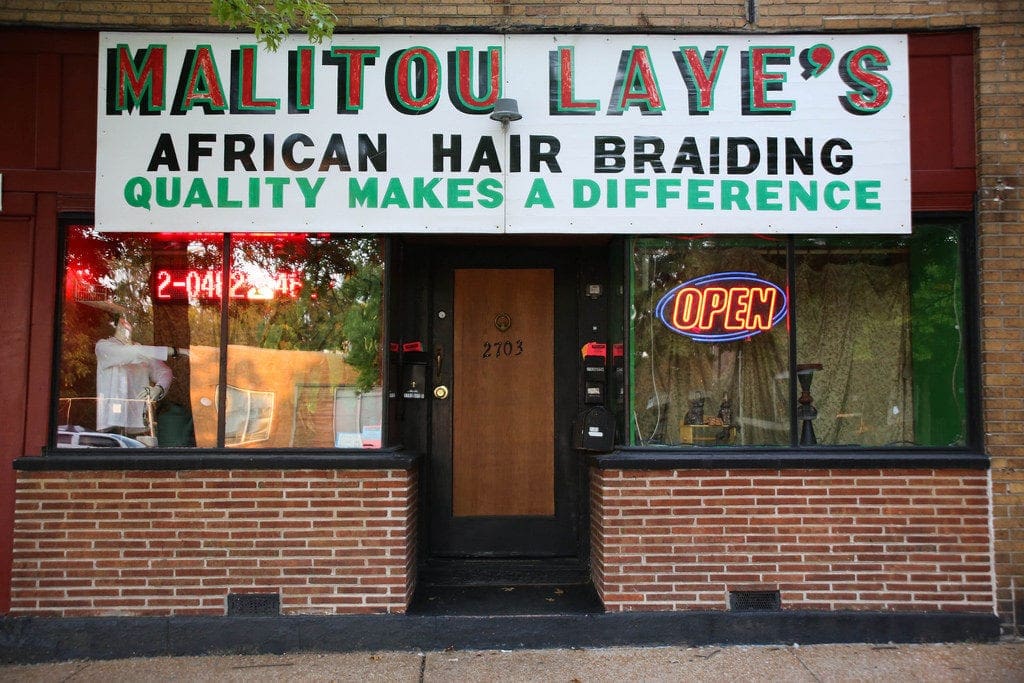New Jersey gave its back to freedom as Gov. Phil Murphy vetoed a bill exempting hair braiders from the state’s hair-braiding licensing rules. Instead of outright freeing African hair braiders, the state’s General Assembly approved a substitute plan that still requires workers to go through 50 hours of coursework before they can apply for a license.
Once this new bill is signed into law, state’s braiders won’t have to pay as much as $17,000 to a beauty school for a license or go through 1,200 hours of training, which is a positive change. However, simply easing the training requirements isn’t enough, as entrepreneurs will still have to undergo unnecessary training just to legally provide services to the African-American community.

Brigitte Nzali, one of New Jersey’s most vocal opponents of hair-braiding regulations, owns African & American Braidings, Inc. and has been pushing for reform for nearly two decades.
After she noticed that people were going to other states to braid their hair over 18 years ago, she knew something was wrong. That’s why she opened her business as soon as she got her citizenship.
“I’m an African—I know how to braid, it’s the culture,” Nzali said. “My mom braids, and since I was born we were braiding. I’m like, ‘Oh, this is a good business that I can focus here in the community and that way people don’t have to travel everywhere to have their hair done,’ so I decided to open a braiding salon.”
But her fight to deregulate the industry so that more entrepreneurs were free to open their own business has faced continuous resistance from the state.
“I’ve been fighting,” Nzali said. “I wrote to the governor. I wrote to the previous governor. The previous governor heard about my involvement in this issue and appointed me to his board to help for braiding. The board rejected my appointment because you have to go through legislation and all that. In between that, they’re still fining me.”
Regulated Markets Are Monopoly-Friendly Markets
Perhaps, Nzali’s stance continues to be ignored or downplayed because of the stronger, much more powerful beauty lobby. But while regulators claim that the field must be under scrutiny because of the chemicals used in their products, African hair-braiding is also called natural braiding precisely because they use no chemicals.
In addition, economists explain that even if there is a legitimate risk, the market is better at regulating than the government.
Associate professor of economics at Saint Francis University Edward Timmons thinks that especially when it comes to hair braiding, the market has the best solution for both customers and entrepreneurs.
“Regulating occupations is not a binary choice between occupational licensing, the strictest form of regulation, and no regulation at all,” Timmons explained. “With hair-braiding, it may be sufficient to simply allow the market to regulate the profession. Online rating services can provide consumers with information on good and bad hair braiders. Hair braiders providing poor quality service will not be in business for very long.”
So if that’s the case, why is it so difficult for the state to move along?
Over the decades, the government has continued to favor regulation over freedom. As former congressman Ron Paul explained, monopolies are created because not all entrepreneurs are able to foot the bill attached to the regulatory burden imposed on them by the government.
“Monopolies only exist when government tilts the playing field in favor of well-connected crony capitalists,” Paul added.
So while it’s clear that industry leaders have plenty of benefits to keep lobbying government for more regulation, it’s also clear that in the end, only consumers lose, as a restricted market is nothing but a less efficient, less accessible, and less accommodating market.




















